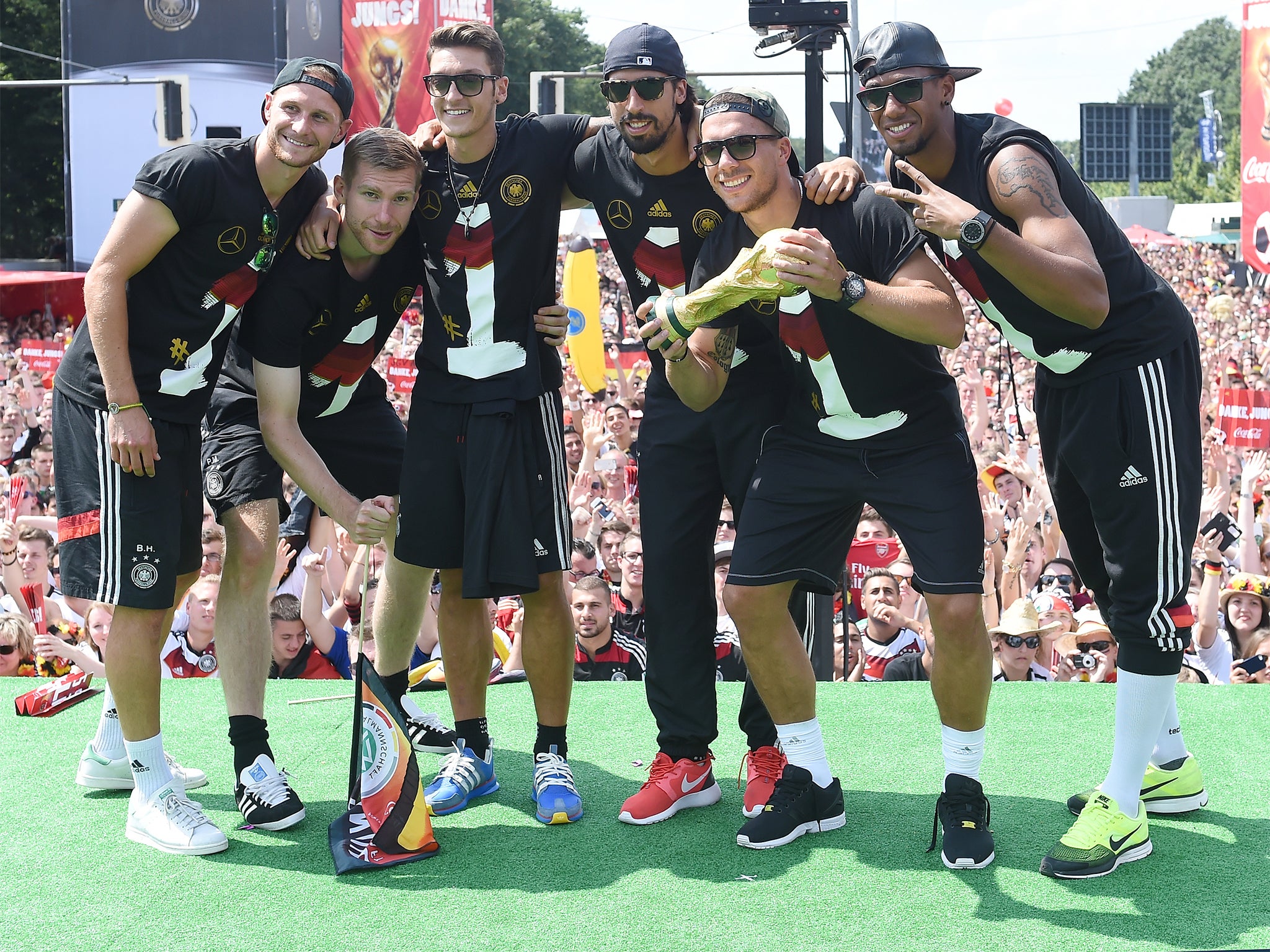German pride is no longer an awkward concept, but a celebration of diversity and excellence
Their World Cup victory has a resonance beyond just football

Germany’s ascent to World Cup glory did more than end the 24 year wait for a fourth success – it marked their first since reunification, channelling an outpouring of national pride decades in the making.
The world is a very different place today than it was in 1990. For all the ways Germany symbolises this change, rising from the rubble of the Berlin Wall and the politics that preceded it to become Europe’s pillar of strength, the nation has done so silently chained to the weight of its history.
As a wheelchair user, I have lived with 14 different German carers over the past five years, all under 30. In amongst our jokes and my attempts to introduce them to Fawlty Towers (with varying levels of success), all have consistently mentioned a feeling of unease with German society at demonstrating national pride. As one friend put it “it’s not something we are allowed to show”.
Put another way, if Basil Faulty was scared to mention the war, Germany has been petrified innocent nationalism will remind people of it.
This self-inflicted guilt by association has gone on far too long. Even when hosting the tournament in 2006, the decision to openly flag wave and sing the national anthem was done with trepidation.
Still, 2006 proved a big step forward. Germany, in reaching the semi-finals, allowed itself to use football as a valve to exhibit national pride. Over the past eight years the team has grown in stature, and Sunday’s footballing victory, gained through efficiency, team spirit, skill and determination, mirrors Germany’s success and confidence on the political stage.
Economically secure, they are the only European nation that has stood up to America in wake of the spying revelations – publically expelling a top US intelligence official over the scandal last week. But it is the World Cup glory that has cemented this “new” assured Germany in the public consciousness.
It is fitting then that the winner should come from 22-year-old Mario Götze, born after reunification and thereby directly removed from the war time divisions. His goal helped spark unabashed celebration on the streets and led 400,000 fans to gather at Berlin’s Brandenburg Gate on Tuesday to welcome the team home.
These celebrations were not about commending German superiority, but revelling in the success of the present and hopes for the future; freed from the past and moving forward proudly as one.
Part of this unity crosses ethnic and racial divides. Much like France’s triumph on home soil in 1998, the German team is host to members of immigrant communities. Sami Khedira and Mezut Özil share Turkish heritage, while Miroslav Klose was born in Poland. The French far-right politician Jean-Marie Le Pen tried to discredit the French side by terming it “black, blanc, beur” in a redesignation of their flag. However, following the team’s success, the general public turned this into a term of affection. Algerian born Zinedine Zidane, the maestro of the side, rightly concluded: “This mix was our strength”.
Germany has not seen this as a point worthy of note in their case, instead accepting the benefits – a positive counter balance to the social tension sometimes felt with the Turkish immigrant communities, akin to Eastern European scapegoating in the UK.
However, for all the progress made, the hyper-sensitive response to a dance performed and filmed by the German players during the victory parade has shown there is still a way to go in the debate about national pride and respect, at least within the German media.
The moment in question sees the German players first bent double singing “That’s how the Gauchos (Argentina) walk”, before straightening up and jumping around, proclaiming “This is how the Germans walk” to loud cheers from the crowd. This has led to allegations of racism from some quarters in Germany.
Interestingly, the British press have shown no interest or awareness in the story, with the BBC featuring the video in a positive piece on the celebrations. It would seem the German team and population feel similarly at ease, expressing playful joy at beating Argentina to become reigning world champions.
International relations might have once been a prickly topic for Germans, and made events like the World Cup uncomfortable. But with their renewed confidence in their global standing, and multicultural success, there's a lot of which the Germans can be proud.



Join our commenting forum
Join thought-provoking conversations, follow other Independent readers and see their replies